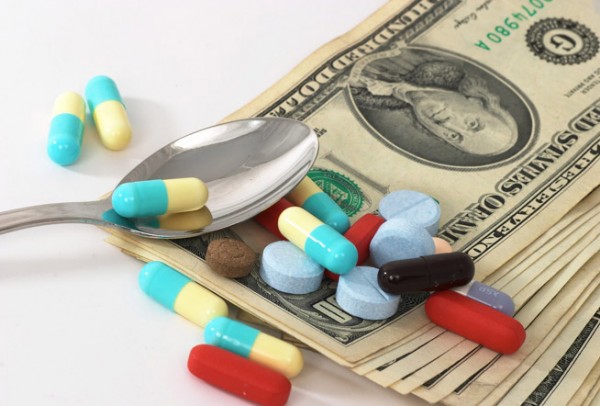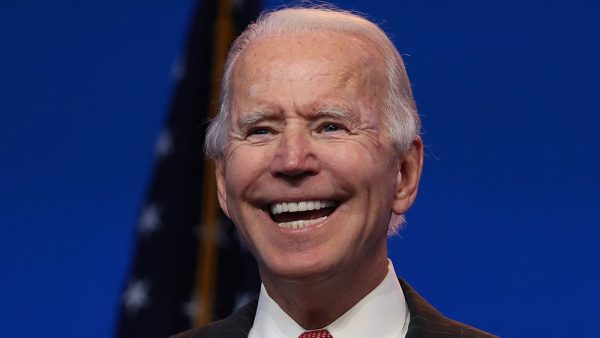 Parler
Parler Gab
Gab
"A lifesaving prescription drug does not mean anything if you cannot afford to buy that drug."
Sanders, chair of the Senate Budget Committee, requested unanimous consent to proceed to debate and a vote on the Cutting Medicare Prescription Drug Prices in Half Act, a measure he introduced earlier Wednesday alongside Sen. Amy Klobuchar (D-Minn.). If passed, the bill would bring the prices of drugs covered by Medicare into line with what the Department of Veterans Affairs (VA) or the Federal Supply Schedule pay for the same medications. According to a 2017 Government Accountability Office study, the VA "paid an average of 54% less per unit than Medicare" for a sample of hundreds of brand-name and generic drugs. But Crapo—a major recipient of pharmaceutical and insurance industry donations—objected to Sanders' request to advance the legislation, claiming it would usher in "more bureaucracy." The Idaho Republican is the lead sponsor of a more industry-friendly bill titled the Lower Costs, More Cures Act, which advocates a "market-based approach" to lowering drug prices. In a floor speech on Wednesday, Sanders said that "for far too long, it has not been Congress that has been regulating the pharmaceutical industry, it has been the pharmaceutical industry that has been regulating Congress." "All over this country, the American people are asking a simple question: How many people need to die, how many people need to get unnecessarily sicker, before Congress is prepared to take on the greed of the prescription drug industry?" said the Vermont senator. "Enough is enough. A lifesaving prescription drug does not mean anything if you cannot afford to buy that drug." “We cannot allow the pharmaceutical industry to charge the American people, by far, the highest prices in the world for prescription drugs,” Sanders added. Legislative action against sky-high and rising drug prices frequently ranks as a top priority of voters, and Sanders has warned that Democrats could face disaster in the upcoming midterms if they fail to deliver. The Build Back Better Act, sweeping legislation that includes provisions to cut medicine costs, is stalled in the Senate due to opposition from Sens. Joe Manchin (D-W.Va.), Kyrsten Sinema (D-Ariz.), and every Republican in the chamber. The attempt by Sanders and Klobuchar to hold a vote on their standalone drug-price legislation came as pharmaceutical firms—which lobbied aggressively against the Build Back Better package—continued to raise the costs of medications that treat a range of serious conditions, from cancer to heart disease to HIV. An analysis released last week by Patients for Affordable Drugs showed that pharma companies have increased the prices of 742 medications so far this year. "Of the 742 drugs that the industry raised prices on, 92% were on brand-name drugs, one in four exceeded the most recent rate of inflation available in early January, and 93% exceeded the projected inflation rate for 2023, 2.3%," the group found. David Mitchell, a cancer patient and the founder of Patients for Affordable Drugs, said in a statement that "right now, Big Pharma has unlimited pricing power on brand-name drugs." "Consistently," Mitchell continued, "the industry proves it only cares about maximizing profit—not public health—and will continue to raise prices as high as it thinks possible without regard to the millions of Americans who are hurt by high drug prices." Read more at: CommonDreams.orgSteve Quayle: Truth about aliens and destruction of human race will be revealed
By Kevin Hughes // Share
They are screwing with the weather maps: SUN is BAD!
By News Editors // Share
“Morally and intellectually corrupt”: UCLA professor resigns in protest over viewpoint intolerance
By News Editors // Share
Governments continue to obscure COVID-19 vaccine data amid rising concerns over excess deaths
By patricklewis // Share
Tech giant Microsoft backs EXTINCTION with its support of carbon capture programs
By ramontomeydw // Share
Germany to resume arms exports to Israel despite repeated ceasefire violations
By isabelle // Share










